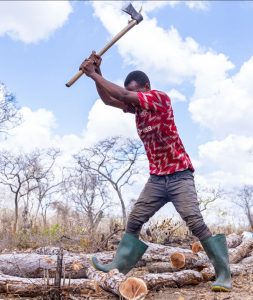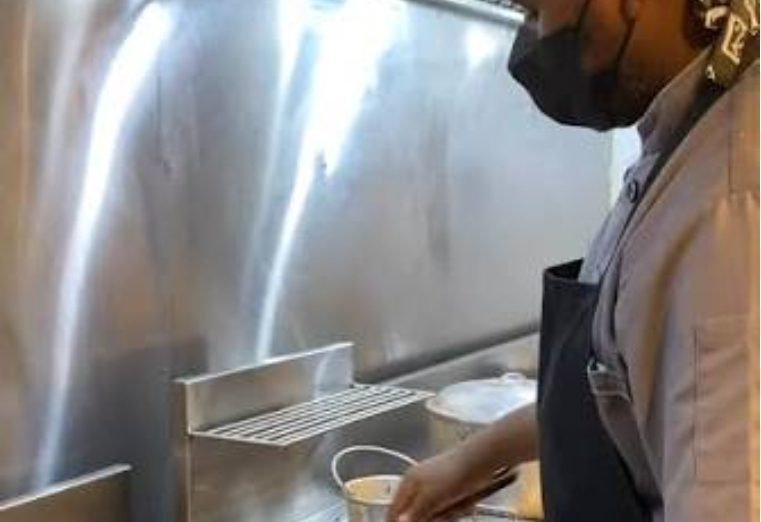FOR generations, the kitchen fire in Tanzania was seen as a woman’s domain – a smoky corner where men rarely lingered. But as the nation turns toward clean cooking and modern energy, the conversation is widening. Men, too, are rethinking their roles – from firewood gatherers and charcoal buyers to advocates of clean, efficient energy.
Their voices reveal a quiet transformation that cuts across income, geography, and identity – from dusty rural homesteads to polished city apartments.
A farmer who fears change
In the green hills of Njombe, Stephano Mlowoka, 62, still rises at dawn to chop wood for the morning meal. His wife lights the fire, and smoke drifts through the thatched roof.
“I’ve cooked with firewood all my life,” he says, resting his axe on the stump. “It’s free from the forest. Why should I pay for gas?”
Stephano’s fields stretch wide, but his thinking remains close to home. He worries about what clean energy might mean for his culture – and for the pride of self-reliance. “People say firewood is dirty,” he adds. “But it has kept us alive. Even the smoke, I’m used to it.”
A charcoal trader in transition
About 500 kilometers away in Morogoro, Bakari Msemwa, 44, arranges sacks of charcoal along the roadside. He’s been in the business for 15 years, feeding the city’s appetite for black gold.
“When I started, this was easy money,” he says. “Now, trees are few and police checks are many. They call us destroyers of the environment.”
But Bakari has started to shift. He now sells briquettes made from maize cobs and coconut shells. “Customers are curious,” he grins. “They burn cleaner and last longer. Maybe this is the future.”
For him, clean energy isn’t just policy talk. It’s survival in a changing market.

A village teacher who dreams of gas
In Kigoma, Daudi Kasimba, 38, a primary school teacher, dreams of using LPG. “I’ve seen gas stoves on television,” he says. “They look simple, but too costly for a teacher’s salary.”
His family still cooks on firewood. The smoke fills the small kitchen where his daughter studies by the light of a kerosene lamp. “We teach about climate change at school,” he smiles sadly. “But we live it every evening.”
Daudi hopes the government’s clean cooking program will one day reach rural teachers like him. “If I could afford gas, my wife would breathe easier, and my children would have more time to read instead of collecting firewood.”
A mechanic who found modern fire
In Dodoma, the capital’s expanding neighborhoods tell a different story. Lucas Mushi, 29, a motorbike mechanic, switched from charcoal to gas last year.
“I used to spend hours blowing on charcoal to cook ugali after work,” he recalls. “Now, with gas, I finish in minutes. It’s clean and quiet.”
Lucas laughs when asked about the old ways. “People think gas is only for the rich, but it’s cheaper in the long run. My wife and I save money and time.”
To him, clean energy is not just a convenience. It is dignity. “When my friends visit, I don’t smell of smoke anymore,” he says proudly.
A businessman who believes in solar power
Across the city in Dar es Salaam, Nicholas Mgwassa, 47, an entrepreneur, has transformed his home into a solar-powered model. His kitchen runs on electric induction cookers powered by rooftop panels.
“When I travel abroad, I see what’s possible,” he explains. “Tanzania has the sun, yet we still burn wood. It’s a contradiction we must solve.”
Nicholas employs two young technicians who install small solar systems in peri-urban homes. “We need to make clean cooking aspirational,” he says. “Something every man wants for his family – not just a luxury for the elite.”

The urban chef who blends old and new
At a small restaurant in Arusha, Chef Rashid Nanyaro, 35, moves easily between gas and charcoal stoves. “Some dishes need the smoky flavor,” he says. “But gas saves time for breakfast orders.”
He runs a family-owned eatery where his wife manages the finances. “Charcoal gives taste, gas gives speed – together, they make business,” he laughs.
But Rashid also sees the broader picture. “Charcoal is expensive now, and customers talk about the environment,” he says. “If the government supports affordable clean energy, small food vendors like us will lead the change.”
A new definition of masculinity
For years, Tanzanian men distanced themselves from kitchen work. But clean energy is reshaping that thinking. In urban apartments, men cook with gas or electricity. In villages, some are joining cooperatives to buy improved stoves.
“The kitchen is not shameful anymore,” says Lucas, the mechanic. “It’s part of being a responsible man.”
Even people like Stephano in Njombe have started to notice. Kassim Juma, 68, has the youngest son, a university student, who recently visited home in Kalenga, Iringa region, with a portable solar cooker. “He boiled tea with sunlight,” the old man chuckles. “Maybe our fire has found a new sky.”
Fire, future, and the Tanzanian dream
As COP30 approaches in Brazil, Tanzania stands at the heart of Africa’s clean energy conversation. The government’s commitment to universal access to modern cooking by 2034 could change millions of lives – if it truly reaches the last village.
From poor farmers to wealthy engineers, Tanzanian men are beginning to realize that clean energy is not a women’s issue – it is a family, economic, and national issue.
For some, the fire still burns in the forest. For others, it hums quietly through solar wires or glows blue under a gas pot. Together, their stories mark a turning point – a new masculinity forged not in smoke, but in light.










